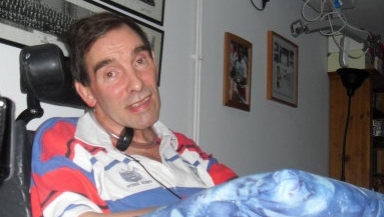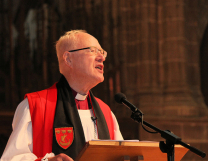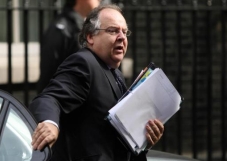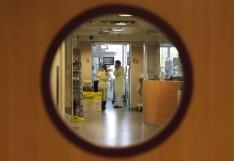Assisted suicide has been made easier as a result of guidance issued by the Director of Public Prosecutions (DPP) , say campaigners.
However, the Crown Prosecution Service (CPS) has denied the claims, saying that guidance from DPP Alison Saunders was only a clarification of existing rules.
In a statement released yesterday, the CPS updated one of its 16 'Public interest factors tending in favour of prosecution' to include a specific reference to care professionals "with a specific and professional duty of care to the person in question". It said that the change was to avoid suggesting that "professionals brought in to help from outside the family circle should be more likely to be prosecuted simply because of their professions".
The guidance was issued following comments by Supreme Court judges in the case of Tony Nicklinson and others.

Saunders said: "This is, of course, an emotive subject on which many hold strong views and these cases present difficult and complex decisions for prosecutors. Each case must be considered on its own facts and merits and prosecutors must weigh each public interest factor depending on the circumstances of each case and go on to make an overall assessment.
"Assisting or encouraging suicide remains illegal and nothing in these guidelines offers immunity against prosecution. It is my role to ensure that the guidance I publish contributes to a consistent and principled approach which can be understood by the public and the police as well as by prosecutors."
According to campaigners against assisted dying, this leaves it more open for health care professionals without a direct relationship with the patient to escape prosecution for involvement in assisted suicide, for example through supplying drugs.
Alistair Thompson, a spokesman for the Care Not Killing campaign, told Christian Today: "Our view is that this is not just a technical change. Doctors and other health care professionals, because they are in a position of trust, are held to a higher standard. Doctors with no relationship with the patient are not held to the same standard and are less likely to be prosecuted. This is a very significant move."
He said that Lord Falconer's Assisted Dying Bill would be debated in the House of Lords on November 7 and that this was the appropriate place to consider such issues. The DPP's statement, he said, "usurps the democratic will of Parliament, is entirely unnecessary and significantly changes the law".
A CPS spokesperson said: "This is not a change in approach. We have clarified our guidelines in relation to assisted suicide and are happy to do so after comments from the Supreme Court."
Dr Richard Vautrey, deputy chair of the British Medical Association's General Practitioners Committee and a former vice-president of the Methodist Conference, said: "This is not something that will make a material difference and patients do remain protected under the law."
















